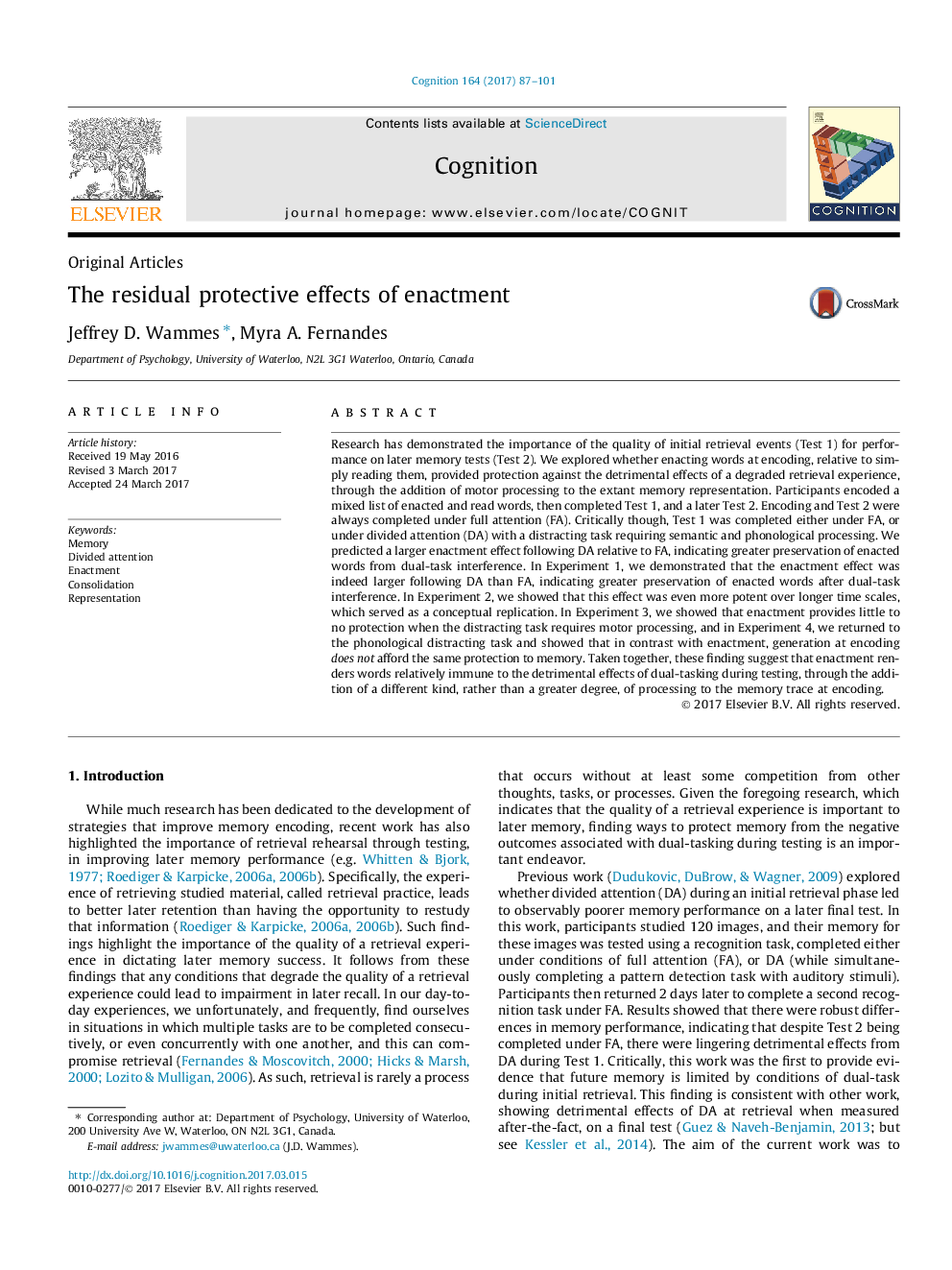ترجمه فارسی عنوان مقاله
مقالات اصلی اثرات محافظتی پایدار تصویب
عنوان انگلیسی
Original ArticlesThe residual protective effects of enactment
| کد مقاله | سال انتشار | تعداد صفحات مقاله انگلیسی |
|---|---|---|
| 158627 | 2017 | 15 صفحه PDF |
منبع

Publisher : Elsevier - Science Direct (الزویر - ساینس دایرکت)
Journal : Cognition, Volume 164, July 2017, Pages 87-101
ترجمه کلمات کلیدی
حافظه، تقسیم توجه، تصویب، تثبیت، نمایندگی،
کلمات کلیدی انگلیسی
Memory; Divided attention; Enactment; Consolidation; Representation;

